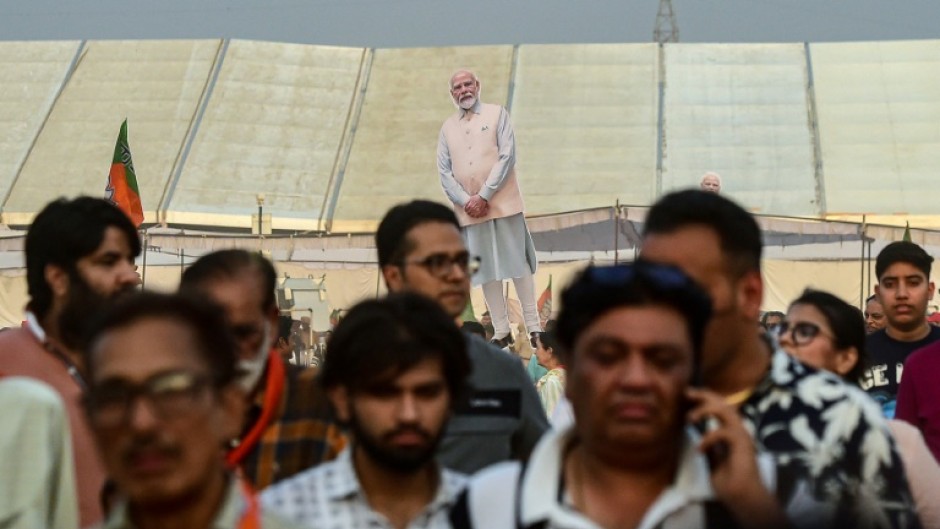NEW DELHI - Two top rivals of Indian Prime Minister Narendra Modi who accuse his government of targeting them in unjustified criminal probes cast their votes in New Delhi on Saturday as the country's six-week election resumed.
Hindu nationalist Modi, 73, remains broadly popular after a decade in office and his ruling Bharatiya Janata Party (BJP) is widely expected to win a third term next month after a poll hit by high summer temperatures.
But accusations that the BJP has sought to sideline its opponents via the justice system have sparked concerns from UN rights chief Volker Turk and rights groups over the election's fairness.
Rahul Gandhi, the most prominent leader of India's opposition Congress party, cast his ballot at a polling station in New Delhi, where temperatures were forecast to reach 43 degrees Celsius (109 degrees Fahrenheit).
A son, grandson and great-grandson of former prime ministers, Gandhi paused after voting to take a selfie with his mother Sonia but did not speak to crowds of reporters.
The scion of a dynasty that dominated Indian politics for decades, he was convicted of criminal libel last year after a complaint by a member of Modi's party.
His two-year prison sentence saw him disqualified from parliament until the verdict was suspended by a higher court.
After voting, Delhi Chief Minister Arvind Kejriwal, 55, leader of the opposition Aam Aadmi Party (AAP), urged citizens: "Please vote, use your right to vote, and vote against dictatorship."
Kejriwal was arrested in March in a long-running graft case and detained for several weeks before the Supreme Court granted him bail earlier this month and he returned to the campaign trail.
Investigators "had no proof and yet they jailed him", opposition voter Yogesh Kumar, 42, told AFP. "This is a blunt show of power."
Congress is spearheading an opposition alliance of more than two dozen parties competing jointly against Modi, including the AAP.
Kejriwal's organisation grew out of an anti-corruption movement a decade ago -- its name means Common Man's party -- and has been elected to office in the Delhi region and the state of Punjab, but has struggled to establish itself as a nationwide force.
In February, authorities froze several Congress bank accounts as part of a running dispute over income tax returns filed five years ago, a move Gandhi said had severely impacted the party's ability to contest the election.
"We have no money to campaign, we cannot support our candidates," the 53-year-old told reporters in March.
Modi's political opponents and international rights campaigners have long sounded the alarm on India's shrinking democratic space.
US think-tank Freedom House said this year that the BJP had "increasingly used government institutions to target political opponents".
Heatwave 'red alert'

India is voting in seven phases over six weeks to ease the immense logistical burden of staging an election in the world's most populous country.
Turnout is down several percentage points from the last national poll in 2019, with analysts blaming widespread expectations of a Modi victory as well as hotter-than-average temperatures heading into the Indian summer.
Modi's championing of India's majority Hindu faith is at the heart of his popular appeal, but Muslim AAP supporter Ghosya Tahir said she and others were experiencing increasing discrimination under the BJP's rule.
"We want peace and harmony," the 34-year-old told AFP. "Even the people who were good to us have started to avoid us because they think we are not good people."
India's weather bureau this week issued a heatwave "red alert" for Delhi and surrounding states where tens of millions of people were casting their ballots on Saturday.
The India Meteorological Department warned of heightened health risks for infants, the elderly and those with chronic diseases.
Extensive scientific research shows climate change is causing heatwaves to become longer, more frequent and more intense, with Asia warming faster than the global average.
More than 968 million people are eligible to vote in the Indian election, with the final round of polling on June 1 and results expected three days later.

